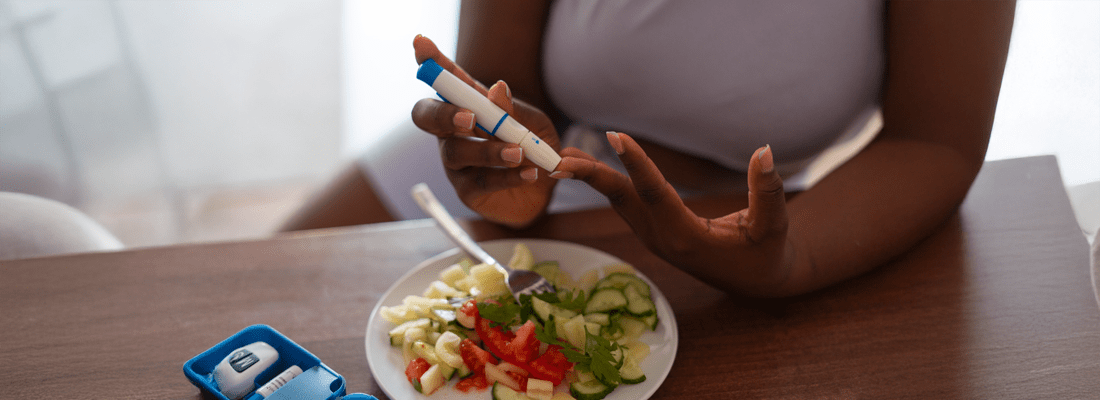Type 2 diabetes is one of the fastest-growing health challenges globally. Characterized by insulin resistance and elevated blood sugar levels, this condition can lead to serious complications if left unmanaged. But a crucial question remains at the heart of diabetes discussions, is type 2 diabetes reversible?
With evolving medical research, innovative treatment methods, and proactive lifestyle shifts, there’s a growing interest in how to reverse type 2 diabetes. This article dives deep into the causes, symptoms, treatment options, including type 2 diabetes clinical trials, and whether true reversal is possible.
Prevalence of Type 2 Diabetes: A Global Concern
According to the International Diabetes Federation (IDF), over 537 million adults were living with diabetes worldwide in 2021, and nearly 90-95% of them had type 2 diabetes. The prevalence is expected to surpass 643 million by 2030. In the United States alone, the Centers for Disease Control and Prevention (CDC) estimates that more than 38 million people have diabetes, with a significant number unaware of their condition.
The rapid rise in obesity rates, sedentary lifestyles, and dietary changes has fueled this surge. This data urges us to consider new strategies, including exploring the question, is type 2 diabetes reversible, as a step toward reclaiming health and preventing complications like heart disease, kidney failure, and neuropathy.
Understanding the Root: Causes of Type 2 Diabetes
| Causes | Explanation |
|---|---|
| Genetic predisposition | Family history of diabetes significantly increases risk |
| Obesity | Excess body fat, especially around the abdomen, reduces insulin sensitivity |
| Physical inactivity | A sedentary lifestyle impairs glucose metabolism |
| Unhealthy eating habits | Diets high in processed sugars and saturated fats contribute to insulin resistance |
| Insulin resistance | Cells fail to respond to insulin, leading to high blood glucose |
| Age | Risk increases after 45, although it’s rising among younger adults and children |
| Hormonal conditions | Conditions like PCOS can increase diabetes risk |
Recognizing the Signs: Symptoms of Type 2 Diabetes
| Symptoms | Description |
|---|---|
| Increased thirst and urination | Frequent need to urinate and persistent dehydration |
| Fatigue | Constant tiredness due to poor energy utilization |
| Blurred vision | High blood sugar affects eye lens, causing vision problems |
| Slow wound healing | Cuts and bruises take longer to heal |
| Unexplained weight loss | Despite eating, the body breaks down muscle and fat for energy |
| Tingling or numbness | Especially in hands and feet; may indicate nerve damage |
Reversing Type 2 Diabetes: What Science and Studies Really Say
This is one of the most frequently asked questions by those diagnosed. Is type 2 diabetes reversible? The answer depends on several factors such as timing of diagnosis, individual metabolic health, and willingness to make major lifestyle changes. For some, especially those in the early stages, remission is possible.
Clinical remission refers to normal blood sugar levels without medication for at least one year. However, remission doesn’t mean a cure, it requires ongoing maintenance.
How to Reverse Type 2 Diabetes: Is It Possible?
While type 2 diabetes is considered a chronic condition, some individuals may experience significant improvements—sometimes even reaching a state where blood sugar levels return to a non-diabetic range—through intensive lifestyle and medical interventions. This is often referred to as diabetes remission, rather than a permanent reversal. Here are some strategies that have shown promise in helping manage or even achieve remission in some cases:
| Reversal Strategy | Description |
|---|---|
| Weight loss | Frequent need to urinate and persistent dehydration |
| Low-carb diet | Losing just 5–10% of body weight improves insulin sensitivity |
| Regular exercise | Improves insulin function and supports weight control |
| Fasting | Intermittent fasting helps lower insulin levels |
| Medication adjustment | Some medications may support efforts to wean off drugs |
| Bariatric surgery | Shown to induce remission in some obese patients |
Type 2 Diabetes Clinical Trials: Future of Treatment
Modern medicine continues to explore innovative ways to treat and potentially reverse type 2 diabetes. Type 2 diabetes clinical trials are actively testing new drugs, gene therapies, and devices that may promote long-term remission.
Management Strategies for Long-Term Success
While the goal of reversal is appealing, managing type 2 diabetes effectively is critical, even for those who achieve remission.
Lifestyle Changes:
- Stick to a Mediterranean or plant-based diet
- Avoid sugar-sweetened beverages
- Track blood sugar with a continuous glucose monitor (CGM)
Physical Activity:
- 150 minutes of moderate-intensity aerobic activity per week
- Strength training 2x per week improves insulin sensitivity
Medication Adherence:
- Metformin, SGLT2 inhibitors, and others help manage blood sugar
- Regular consultations with an endocrinologist
Mental Health:
- Address diabetes burnout
- Practice mindfulness and stress-reduction techniques
Can You Reverse Type 2 Diabetes?
Now, let’s get to the heart of your question: Can you reverse type 2 diabetes?
The good news is, for many individuals, particularly those recently diagnosed or significantly overweight, the answer can be yes. However, it’s not a one-size-fits-all solution. It demands a strong commitment to diet, exercise, and monitoring.
How to Reverse Type 2 Diabetes Naturally?
Nature has provided tools that, when used wisely, can support reversal:
- Cinnamon and berberine may aid glucose regulation
- Apple cider vinegar helps reduce post-meal spikes
- Whole grains, fiber-rich fruits, and legumes improve insulin response
But even natural approaches should be monitored under medical supervision.
Is Type 2 Diabetes Reversible or Just Manageable? Unpacking the Truth
Yes, in some cases, type 2 diabetes can be put into remission, especially with early and sustained lifestyle changes. For some individuals, significant weight loss, dietary adjustments, and increased physical activity can lead to blood sugar levels returning to a non-diabetic range without the need for medications. However, this doesn’t mean the condition is permanently gone, it requires ongoing care and monitoring.
Sustaining Reversal: A Lifelong Commitment
Even if type 2 diabetes is reversible, maintaining that state is a daily commitment. Like staying fit, it’s not a one-time achievement but an ongoing lifestyle. And while relapses can happen, the key is consistent self-care.
Takeaway: Is Type 2 Diabetes Reversible?
So, is type 2 diabetes reversible? For many, especially with early diagnosis and lifestyle changes, the answer is yes, remission is possible. However, it requires ongoing effort, including weight loss, a balanced diet, regular exercise, and sometimes participation in type 2 diabetes clinical trials. While remission is not a cure, it offers hope. Understanding how to reverse type 2 diabetes empowers individuals to take control. Can you reverse type 2 diabetes? With commitment, many make it extremely manageable.




